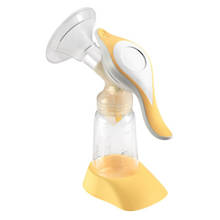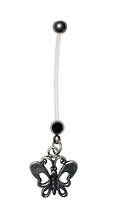Home > Trying to Conceive > Fertility Supplements > Supplements for Men > Blackmores Bio Zinc 84 Tablets
You might also be interested in ...
Harmony™ with 2-Phase Expression (Medela)
This manual breastpump is ideal for mothers who only express milk occasionally and do not want to miss the usual feel of their baby.
Special Offer
NZ $69.00 NZ $58.00
Save NZ $11.00
incl GST









Seventy two days before you attempt to conceive, you need to ensure that both partners are in optimal health. This will ensure that the sperm (which has a 72 day life cycle) fertilising the ovum will be a healthy, viable specimen for making the best babies possible.
Although all the vitamins and minerals are important and eating a natural, varied, whole food diet will be essential to your health, there a few stand out nutrients for male reproductive health.
The Zinc Link to Fertility
Zinc is an extremely common deficiency in the Western world. NZ soils are low in zinc, added to the fact that it is a mineral which is poorly absorbed it is not surprising that there is a general deficiency of zinc in the NZ population. Zinc has been shown in clinical studies to increase sperm count and is vital for the development and functioning of the hormonal and reproductive systems of both sexes. It it is also a key player in immune function and it’s needed to keep mother and baby protected. A zinc deficiency during pregnancy may worsen the baby blues and contribute to problems with breastfeeding. Bio Zinc caters for your needs with a convenient, bioavailable form of zinc alongside a blend of co-factors to enhance absorption, retention and activity for support of general, immune and reproductive health.
Ingredients
Zinc amino acid chelate (zinc 14.9 mg) 74.5 mg Magnesium phosphate (magnesium 18.6 mg) 90 mg Manganese amino acid chelate (manganese 2 mg) 20 mg Retinyl acetate (vitamin A 750 µg RE, 2500 IU) 860 µg Pyridoxine hydrochloride (vitamin B6) 50 mg
Directions
Adults – Take 1 tablet a day with a meal, or as professionally prescribed Children under 12 years – Only as professionally prescribed
Size
84 Tablets
Warnings
The recommended daily amount of vitamin A from all sources is 700 µg retinol equivalents for women, and 900 µg retinol equivalents for men. When taken in excess of 3000 µg retinol equivalents, vitamin A can cause birth defects If you are pregnant, or considering becoming pregnant, do not take vitamin A supplements without consulting your doctor or pharmacist